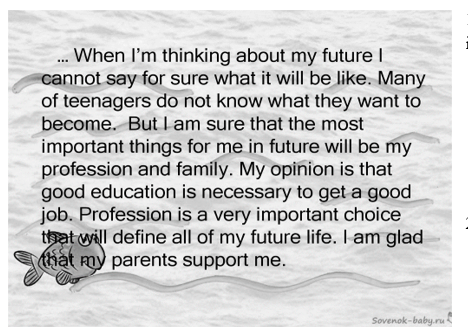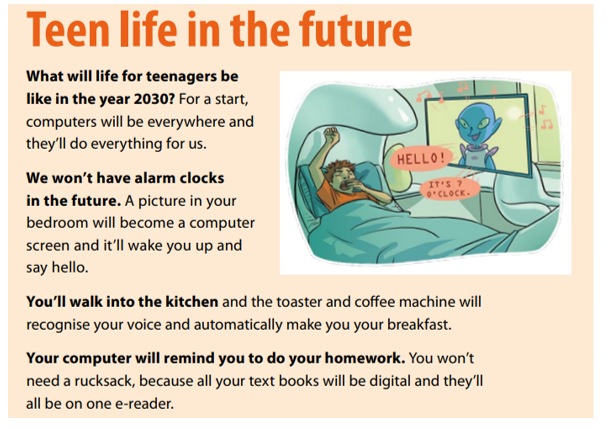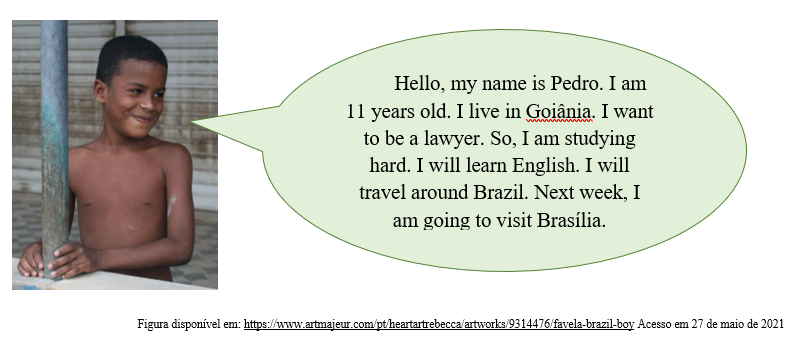AULA 03/2022 – Recomposição 9º ano – Língua Inglesa - 10/02/2022
PLANO DE AMPLIAÇÃO E RECOMPOSIÇÃO DA APRENDIZAGEM – 2022
Atividades 9º ano – Língua Inglesa – 1ª Semana
Colega Professor(a),
O objetivo destas atividades é identificar como está o desenvolvimento de habilidades que aparecem na vida escolar do estudante, antes do ano que ele irá cursar. Logo, são preparatórias para o ano em curso. Não existe uma régua única que usaremos para medir o nível de conhecimento dos estudantes, por isso, precisamos ir aplicando as atividades e identificando os grupos que conseguem desenvolvê-las e os grupos que precisam de mais conhecimento prévio para sua realização. O importante é utilizar o período de recomposição para realmente olhar para as dificuldades do estudante e procurar minimizá-las.
Estas atividades foram elaboradas a partir das habilidades críticas evidenciadas no trabalho com o DCGO em 2021. A partir destas atividades, você professor (a), pode elaborar mais atividades e/ou outras atividades que visem cumprir com o objetivo do nosso Plano de Ampliação e Recomposição da Aprendizagem.
Não se esqueça, trabalhar descritores também é trabalhar currículo!!!
Bom trabalho!

1. O autor do texto demonstra uma certa indecisão sobre
(A) sua família.
(B) sua formação.
(C) seu futuro.
(D) seu carro.
2. Como os adolescentes se comportam diante da escolha profissional? Retire uma frase do texto para comprovar a sua resposta.
Disponível em: https://en.ppt-online.org/172812 Acesso em 30 de mar. de 2020
3. Ao lermos a oração “…what it will be like.”, observamos que o verbo se encontra no
(A) Simple Present.
(B) Simple Past.
(C) Present Continuous.
(D) Simple Future.

Disponível em https://elt.oup.com/elt/students/getsmartitaly/dislessia/level3/Unit_2_Skills_Reading_p22.pdf Acesso em 16 de fev. de 2021.
4. Answer these questions in English. (Responda as perguntas em inglês.)
a) Will computers be everywhere in 2030?
b) What will wake people up in 2030?
c) What wil happen when you will walk into the kitchen?
d) Why won’t you need a rucksack?
Agora, vamos ler a comic strip de Calvin e identificar o uso do Simple Future.

Disponível em gepoteriko.pbworks.com/w/page/31141826/COMICS%20-%20GARFIELD Acesso em 07 de abr. de 2020.
5. Ao lermos o primeiro quadrinho da comic strip, observamos que Garfield se sente
(A) satisfeito
(B) entristecido.
(C) envergonhado.
(D) magoado.
6. O autor do texto utiliza a palavra MAYBE, no último quadrinho, para indicar
(A) certeza.
(B) incerteza.
(C) obrigação.
(D) habilidade.
Atividades 9º ano – Língua Inglesa – 2ª Semana
Temas: Dreams and goals: Future tense (Will and Going to)
ATIVIDADES
Leia o diálogo a seguir e responda os exercícios
Lucy: Hi, Bob! How’s is it going?
Bob: Fine, thanks, and you?
Lucy: Just fine. Where are you going?
Bob: I am going to the library. I have to finish the assignment for tomorrow’s class.
Lucy: Why don’t you do it at home?
Bob: I have a part-time job in the evening so when I get home, I’ll be too tired to do an assignment.
Lucy: Where do you work?
Bob: I work in a café.
Lucy: Why do you like the job?
Bob: It’s interesting. I really enjoy working with people and get extra money.
Lucy: How is the pay?
Bob: The pay’s alright. I get £7 an hour. I would like to earn more as I need a lot of money to buy a new laptop and a smartphone.
Lucy: And how would you do that?
Bob: I’ll try to pick up as many extra shifts as I can. I’ve got to go now. See you later.
Lucy: See you, Bob.
1 . Mark an X TRUE or FALSE according to the text. Then, correct the false statements.

2. Answer the questions in English.
a) Where does Bob work?
b) Who enjoys working with people?
c) Will Bob try to pick up as many extra shifts as he can?
“My dad encouraged us to fail. Growing up, he would ask us what we failed at that week. If we didn’t have something, he would be disappointed. It changed my mindset at an early age that failure is not the outcome, failure is not trying. Don’t be afraid to fail.” – Sara Blakely
Disponível em: https://www.theremotemom.com/motivational-mindset-quotes-for-success/ Acesso em 27 de maio de 2021
Choose the correct alternative to answer the questions. (Escolha a alternativa correta para responder às perguntas.)
3. Who encouraged the author to fail?
a) ( ) His father does.
b) ( ) His father did.
c) ( ) His father will.
d) ( ) His father is.
4. Is failure an outcome?
a) ( ) Yes, it will.
b) ( ) Yes, it did.
c) ( ) Yes, it is.
d) ( ) Yes, it was.
Goals Cost You Something
Working toward your goals doesn’t necessarily cost you money (although it could), but they can cost you in other ways such as with your time, energy, or effort.
Think of some of the things you have to give up if your goal is to qualify for a marathon. You have to give up your warm bed early in the morning, in addition to a lot of time and energy to train, and a lot of effort and willpower to stick with it during times that you may want to quit.
Dreams, however, are free. They’re just ideas and visions that can come and go.
Example:
- Dream: I want to be a runner.
- Goal: I will wake up at 4:30 am every weekday to run the distance that I’ve laid out in my training schedule.
Disponível em: https://www.developgoodhabits.com/dreams-goals/ Acesso em 27 de maio de 2021.
5. Match the questions in column A with their answers in column B.

6. Answer these questions and then ask your friends. Take notes in the following chart. (Responda essas perguntas e depois pergunte a seus amigos. Faça as anotações na tabela a seguir.)

Now, you are going to answer a Dream and Goal Survey.
Dream and Goal Survey
7. What is your dream?
a) I want to be famous.
b) I want to have a good job.
c) I want to have a family.
d) I want to live in a good house.
8. What will you do to achieve your goal?
a) I will study hard.
b) I will have lots of friends.
c) I will earn the lottery.
d) I will work hard.

9. Now, it is your time to write a small text about your Future. Tell us about your dreams and goals. (Agora, é a sua vez de escrever um pequeno texto sobre o seu futuro. Conte-nos sobre os seus sonhos e objetivos.)
10. Leia as frases a seguir e identifique a intencionalidade do autor ao usar o WILL ou o GOING TO, ou seja, fale se é um PLANO, uma PREDIÇÃO COM / SEM EVIDÊNCIA, uma DECISÃO MOMENTÂNEA ou um OFERECIMENTO.
a) “I think that the math exam WILL BE very easy.”
b) “The stores ARE GOING TO BE CLOSED on Friday. It is holiday!”
c) “It is very hot. I WILL TURN ON the air conditioner.”
d) “Don’t worry. I WILL CALL the taxi for you.”
e) “I AM GOING TO BECOME an agronomic engineer. I have already decided.”
11. Make questions to the answers.
a) _________________________________________________________________?
Yes, I will visit my friends.
b) _________________________________________________________________?
I will watch a great movie next Sunday.
c) _________________________________________________________________?
They are going to do their homework tomorrow.
d) _________________________________________________________________?
No, I am not going to travel next month.
12. Complete the sentences with the verbs in parentheses.
a) She thinks she ______________________(play) volleyball with her friends.
b) They ___________________________ (travel) to Salvador. They Have booked the hotel.
c) Maybe you __________________________ (buy) a new dress.
d) I _______________________________ (do) the homework in the afternoon.